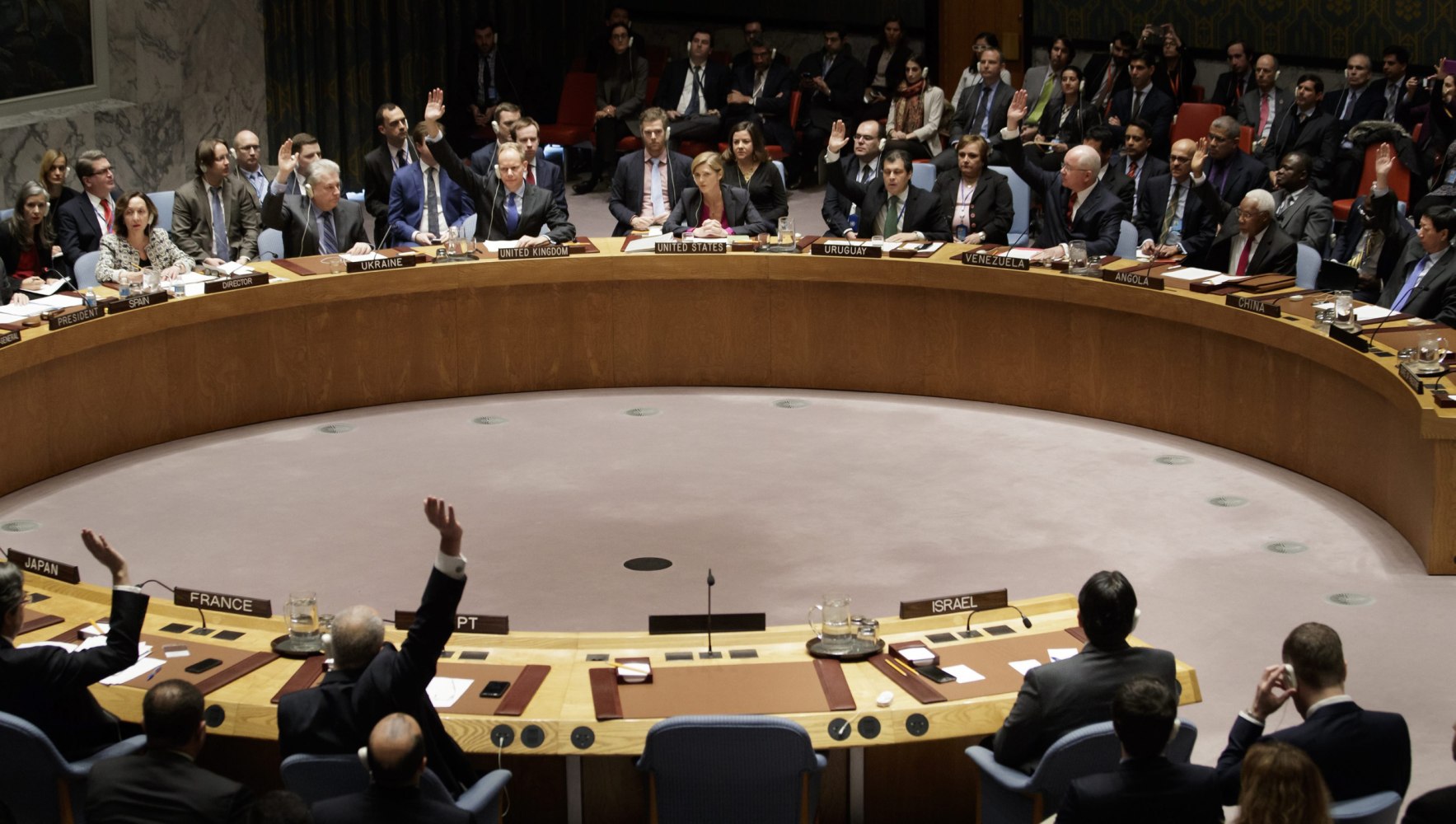 I’ve recently written about the issue of conceptual framing and how Israel finds itself trapped inside a frame in which its neighbors’ actions never matter – only the Jewish state’s actions count. It is therefore always the Jews who stand accused.
I’ve recently written about the issue of conceptual framing and how Israel finds itself trapped inside a frame in which its neighbors’ actions never matter – only the Jewish state’s actions count. It is therefore always the Jews who stand accused.
Given the practical nature of this blog I’d now like to address what can be done to get out of this bind. When an audience is presented with pro- and anti-Israel frames, how do we make sure it will be the truthful one that they accept?
Why is one frame accepted and another rejected?
Whether the subject is Israel or anything else, the public are often presented with competing conceptual frames. Conceptual frames are the parameters of a discussion – what is included and what is excluded; what is considered relevant and what is considered irrelevant. What makes one conceptual frame win out over another? What makes one “stick” in the public consciousness and the other not?
Let’s consider two competing conceptual frames.
- Apartheid wall: Israel has built a reincarnation of the Berlin Wall through the middle of illegally
occupied Palestine, separating Palestinians from their fields, work and families. Within it, Israel has created a ghetto like the one that Jews were confined within in Warsaw.
- Security barrier: In a reluctant response to a campaign of suicide bombings (148 over eleven years resulting in 1,565 deaths) Israel adopted a non-violent approach to protecting her citizens by creating a barrier (mainly of chain link fence) to keep the terrorists at bay.
At first glance, which of the two is more likely to draw in an audience? For someone who knows little or nothing of the facts, it is the first one that appeals.
Even though it is short on information, it is long on emotion and values. Furthermore, it assumes important parts of the argument as givens: there is a country called Palestine, it is occupied by Israel, and the occupation is illegal Also, note how it positions itself as part of a wider narrative that the reader already agrees with. Who isn’t against Nazism and the oppression of the former Eastern Bloc regimes? Who could possibly support apartheid?
In contrast, the second frame appears anemic, despite enumerating a horrifying number of murders. Its language lacks emotion, and it is light on values. Apart from a passing reference to non-violence, it does not connect to any wider narrative; neither does it assume much as a given.
Immediately we begin to see why one of the two frames is more likely to “stick” than the other. Each of them plays the part of a building block in its own larger narrative about Israel and the Middle East. The first one, however, plays a part in an even larger, overarching narrative about human rights and justice. Although the second one could be improved by doing more to engage the audience’s emotions, that wouldn’t alter the fact that it is almost totally cut off from any overarching narrative.
Let’s try to understand this key issue; the significance of narrative.
Story time
When individual conceptual frames fit into a larger structure, they create a “narrative.” This is a way of making sense of a complex myriad of facts by attempting to establish a story that they tell. Events in North America and Britain in the second half of the eighteenth century were so numerous as to defy categorization, but we group some of them into a structure called The American Revolution. This story has a beginning, middle and end, as well as clearly recognizable characters with motivations. It may even have a moral (the Triumph of Freedom over Despotism). It is made up of a number of interlocking conceptual frames (“No Taxation without Representation,” “The Boston Tea Party,” “Crispus Attucks,” “The Shot Heard Around the World,” etc.). And we can link this story with other ones (The French Revolution, The Special Relationship between the US and Britain) and even categorize it as one of the original genres of literature (comedy, tragedy, epic, etc.).
On one level we know that reality is more complex than a story, but on another level we are sure that history is not “just one damn thing after another.” The narrative is a meta-truth above and beyond the mere list of facts of which it consists.
True stories and fiction
The critical thinker will always be willing to test the story against facts. The narrative of the American Revolution is widely accepted as true (even by the British!). In contrast, there was a widely shared narrative in interwar Germany that the German army had not been defeated on the battlefield in World War I, but had only lost because it had been betrayed at home by capitalists, communists and Jews. It was called the “Stab in the Back”. It can be demonstrated to be counter factual by (among other key events) the entry of the United States into the war. It’s an example of a clearly false narrative. Yet huge numbers of Germans continued to believe it, contributing to the rise of Nazism
and World War II.
Between these two extremes are narratives that are harder to verify or falsify. Was the British Empire a vast conspiracy of colonial exploitation, or a mission to bring the blessings of civilization (including cricket) to the less fortunate? Perhaps both, perhaps neither, but rather something else entirely.
What’s the story of Israel?
Anti-Israel advocates have a story to tell about Israel. It’s a story of racism, expulsion and apartheid. It is a dramatic story, not least because it contains a striking dramatic element: “the persecuted turned persecutor.” Of course, it is a demonstrably malicious fiction. The fact that it is self-evidently a false narrative, however, hasn’t stopped it from becoming the dominant narrative about Israel in some surprising parts of the world.[1] The biggest triumph of anti-Israel advocates has been the acceptance of their narrative even by those who oppose it; that is, refuting the anti-Israel narrative has become the major content of the discourse of advocates for Israel.
Of course, the anti-Israel narrative needs to be demolished,[2] but even more importantly, it needs to be replaced with something better.
Since a narrative is made up of a series of interlocking frames, simply changing an individual frame alone won’t destroy the narrative as a whole. And it’s not enough to develop individual, accurate pro-Israel frames because unless can be placed into a larger narrative, they will be left as free-floating and unappealing.
Let’s learn a lesson from Israel’s enemies; the first step to achieving dominance for our narrative is to enunciate it clearly and repeat it incessantly. We especially need to present it when there is no counter-narrative in place. We have become so used to having to respond that we sometimes forget that it’s preferable to initiate. So, to use a modern idiom that tells us a lot about how people think: What’s the story about Israel? Here are some elements of the pro-Israel narrative.
Israel is a triumph of justice
Unjustly exiled from their homeland, the Jews struggled without cease to return. It took 2,000 years for the world to see the justice of their cause and let them go home.
Israel is a beacon of hope
The rest of the Middle East is an almost complete desert of freedom. The Jewish state is not only proof of the determination of the Jewish people to live as free citizens of a democracy, but is the one place in the region where over a million Arabs can live freely as well.
Israel shares the values of free nations
Just as _____ (fill in the name of your country) has a free judiciary, so does Israel. Free elections? Israel too. Governments criticized by the citizens? Israeli national sport!
The world must not abandon the Jews again
Within living memory the Jews came close to annihilation. Anti-Israel advocates say that the Jews should learn from that experience and stop “persecuting” others. Run that by me again? Surely the lesson from the Holocaust is one the non-Jewish world should learn: don’t stand idly by while the Jews’ existence is threatened.
The Jews are the canary in the mine shaft
And even if you haven’t learned the lesson of the Holocaust regarding your responsibility to the Jews, learn the lesson of your responsibility to yourselves. The evil forces in history might start on the Jews, but they never finish with them. What threatens the Jews today will threaten you tomorrow.
Internalizing the false narrative
My last blog post generated more discussion than any previous one (largely thanks to Elder of Ziyon). I chose not to approve one critical response because I thought it was too important to be relegated to the comments section. It reads (in part):
With regard to the conceptual frame: David, I have
news for you – in the eyes of the world we are the thief who has to
give back what it took from the others. There is no room for nuance in
today’s public diplomacy. Is that frame untruthful? Not exactly, not
enough in any case to take us off the hook. Because our hands are not
clean, as a matter of fact they are really very dirty. We are in a
homeland that is a homeland to other people as well, like it or not,
and we have to share it, which we don’t particularly want to. And as
long as we don’t we’ll be challenged, rightly so. Glad you try dealing
with it but as long as our hands are as dirty as they are, it’s a
losing proposition. And you know it.
The writer is a veteran immigrant with a distinguished record of public service, both military and civilian, and a prominent position in public life. It’s impossible to dismiss such a person as a “self-hating Jew.” Yet even such a person, with the gifts of a good intellect and an advanced education, has internalized the false narrative to a frightening degree. Although accepting that the anti-Israel narrative is “not exactly” truthful, he is left with the position that it is essentially true. The story is that Israel is a country whose “hands…are really very dirty.” As long as we (Israel) don’t share our homeland with another people, we will remain “in the eyes of the world…the thief who has to give back what it took from the others”; it’s right that we should be viewed that way and trying and oppose it is “a losing proposition.”
For a man of undoubted courage, who has done so much to serve his people and country, to so completely surrender to the false narrative, is evidence of how pernicious this narrative is and how vital it is to destroy it and replace it with the truth.
1 One hundred fifty million citizens of EU countries agreed with the assertion that “the Israeli state is conducting a war of extermination against the Palestinians,” http://www.timesofisrael.com/jewish-life-in-europe-dying-a-slow-death/
2 In a future blog post, I will show how to destroy a false narrative by exposing its internal flaws.



















